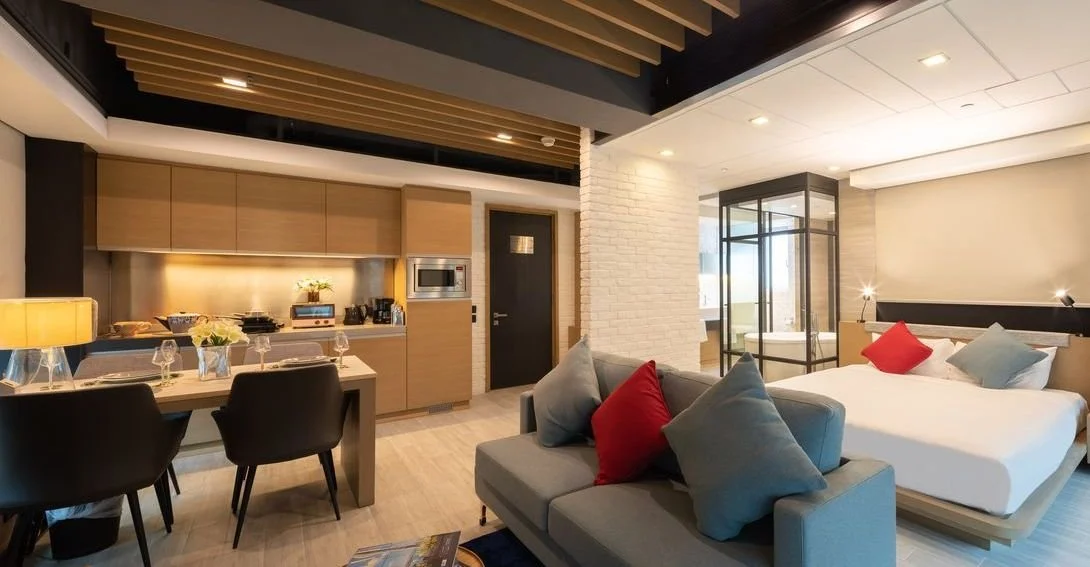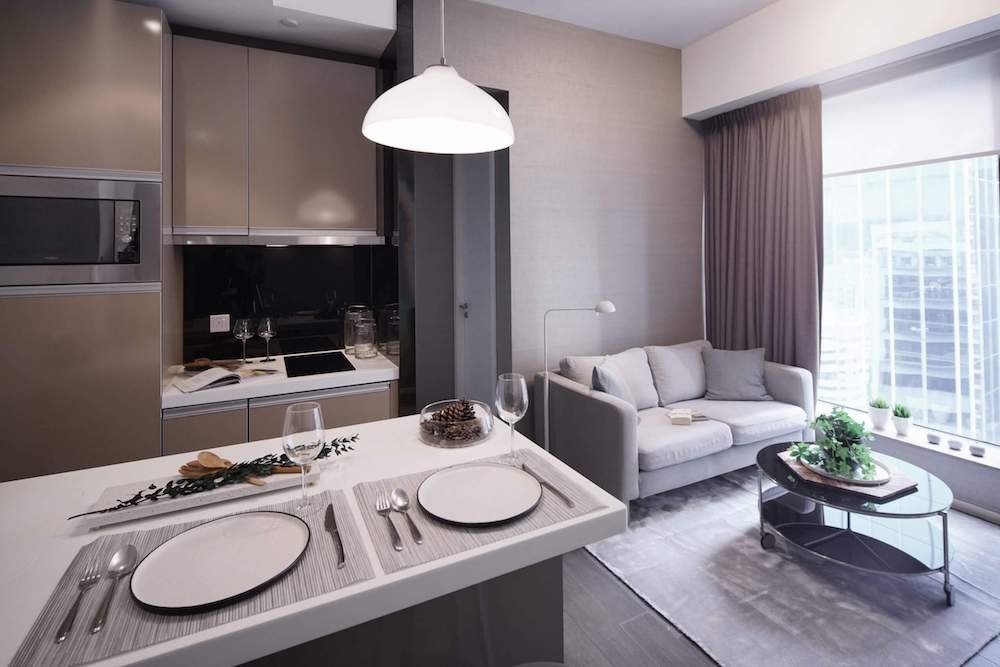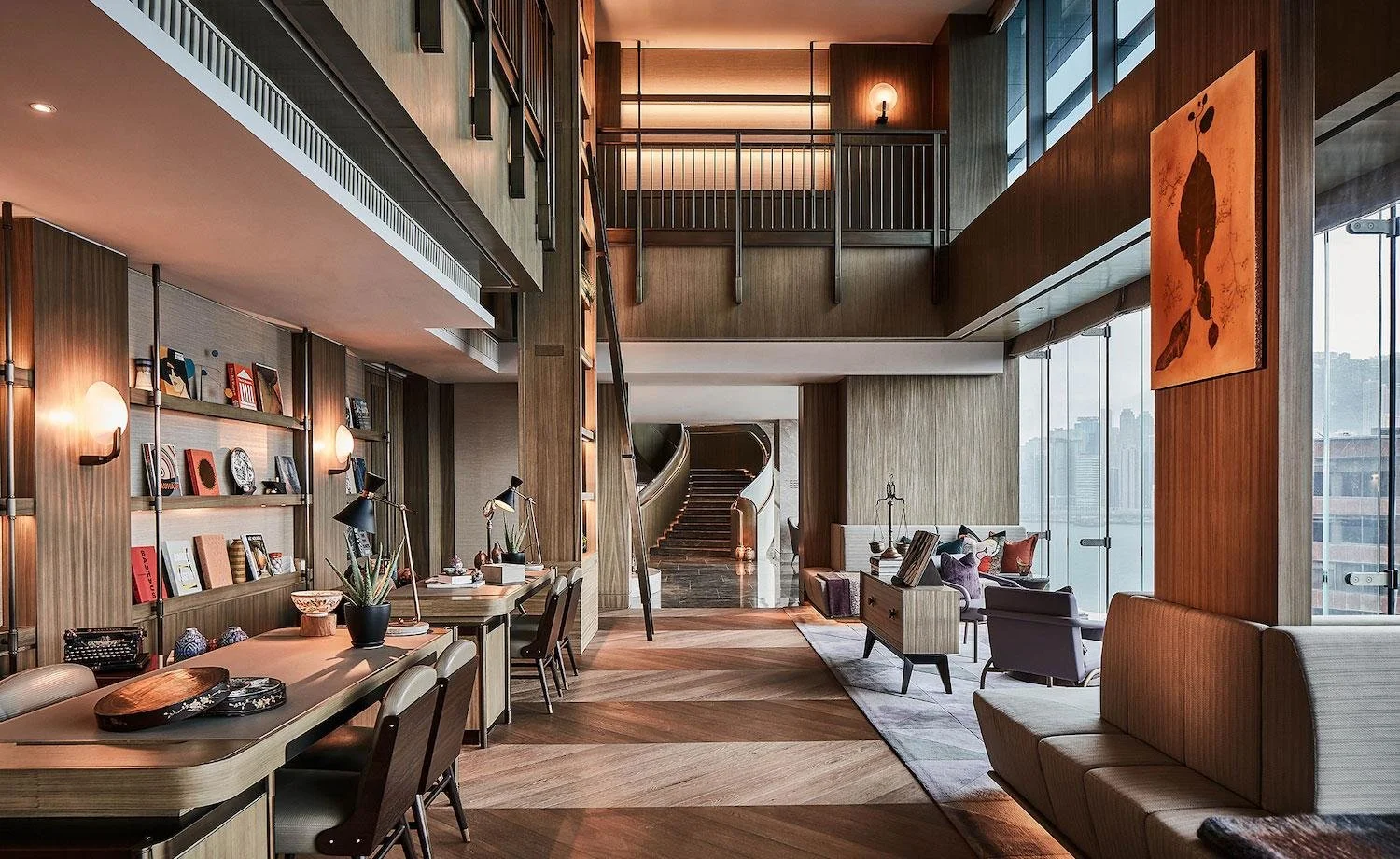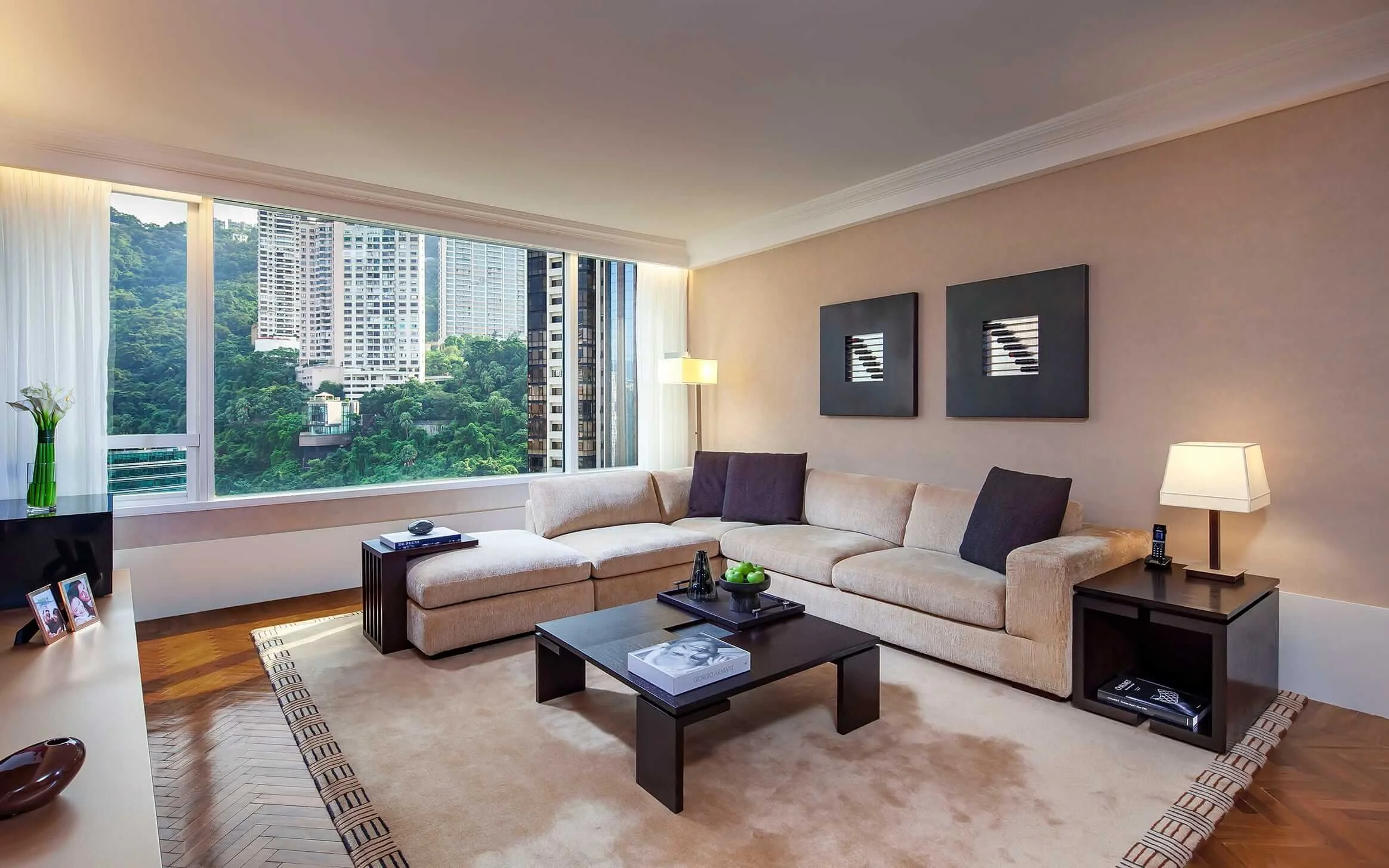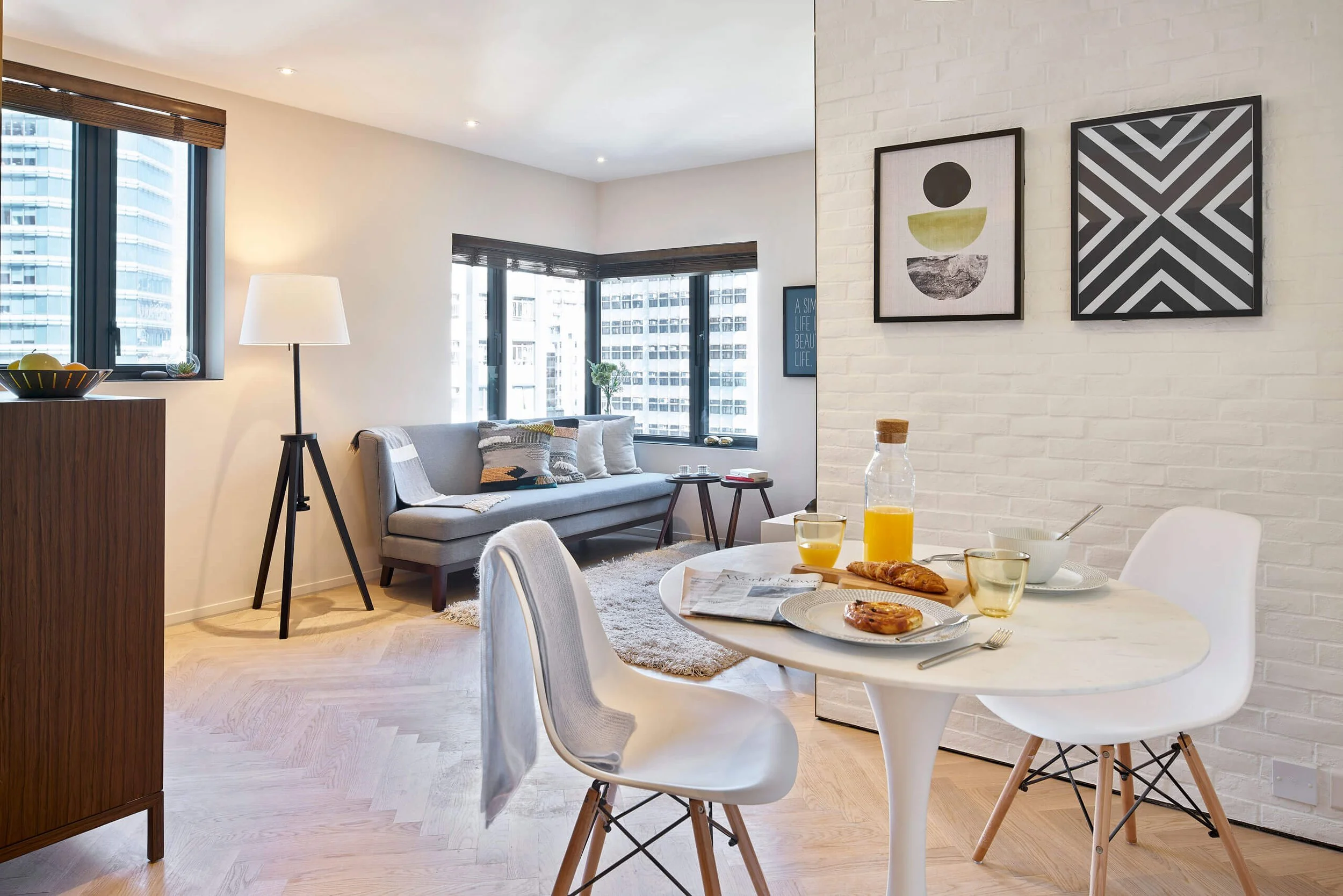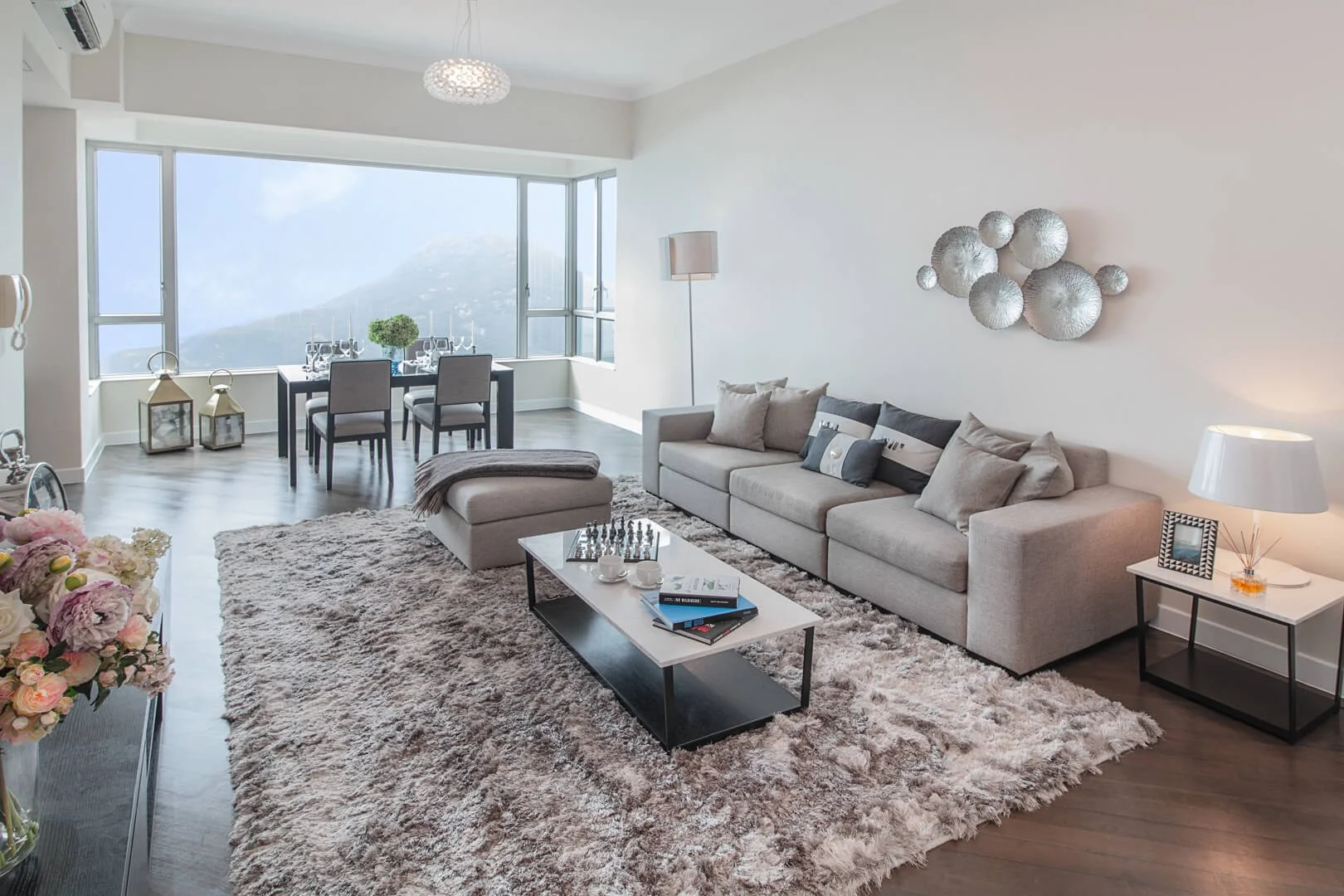Book Your Ideal Serviced Apartment with SA / HK Concierge
Service Apartment Hong Kong
Hong Kong’s Official Serviced Apartments Booking Directory 2026/27
Overview
Embarking on a journey to Hong Kong and contemplating your accommodation options? Consider the pinnacle of flexible living — serviced apartments. These fully furnished, self-contained havens offer a home away from home, equipped with all the amenities one could desire. This guide unveils the nuances of serviced apartments, elucidating their benefits, market dynamics, pricing, and the diverse living space options available. Whether you're a seasoned traveler, expatriate, or someone seeking short-term reprieve, delve into the intricacies of serviced apartments in Hong Kong.
Benefits of Serviced Apartments
Whether you are an international traveler or an individual looking for temporary accommodation, some of the potential benefits of serviced apartments are specified below.
-
In recent years, serviced apartments have emerged as a compelling alternative to hotels and other forms of accommodation, particularly for housing foreign workers during short-term and fixed-term projects in Hong Kong.
They have gained popularity for short-term stays, surpassing hotels in cost-effectiveness while maintaining the service standards expected from traditional business hotels.
-
A serviced apartment in Hong Kong is a fully furnished unit available for both short-term and extended stays. Similar to hotels, it comes equipped with amenities for daily use, housekeeping, and other services to enhance the comfort of each guest, all included in the rental price. Lease agreements also encompass taxes, utilities, and additional surcharges.
Expect the following amenities and features from a serviced apartment:A kitchenette or fully-equipped kitchen.
Spacious accommodations with one or more separate bedrooms.
A living room/area.
A toilet and shower.
Safety deposit box.
One or more televisions, cable TV, wireless internet, and modern in-room technologies like keyless entry.
Basic utilities (water and electricity).
Weekly housekeeping service, with more frequent options available upon request.
Ironing board or clothes steamer.
Shared laundry facility are common although in-room laundry are also available.
A 24-hour helpline.
There are also additional amenities which are more limited, including the following:
-
Your own kitchen:
The availability of a fully-equipped private kitchen or kitchenette distinguishes serviced apartments from hotels. Having the means to cook one's own food provides expats in Hong Kong for work with a home-away-from-home experience and significant cost savings compared to dining out or ordering room service consistently.
Private space:
Privacy is a powerful draw for serviced apartments. Unlike hotels with daily cleaning visits, most serviced apartments include a weekly housekeeping service, minimizing intrusions and fostering a more comfortable environment. Guests can even arrange for more frequent cleaning or choose to clean their own space.
Other features unique to serviced apartments, not commonly found in hotels, include a washer/dryer (either at a common laundry facility within the property or occasionally in-room) for cost-effective laundry, and arrangements for specialized services like dry cleaning.
Additionally, serviced apartments tend to offer more floor space than hotels, with a typical one-bedroom apartment being twice the size of a hotel room. This extra space includes a living area, sleeping area, separate sections for cooking and unwinding, and ample closet space.
Lower costs:
Cost is a significant factor favoring serviced apartments over hotels. For long-term stays (30 days or more), serviced apartments usually have lower rental prices than hotels. Longer stays result in cheaper rates, driven by factors such as less frequent housekeeping, the absence of on-site restaurants, smaller staff sizes, and tax savings for extended accommodations.
-
Serviced apartments have long been associated with extended business and leisure stays, offering purpose-built or repurposed residential spaces. Aparthotels, designed for shorter business stays appealing to both corporate and leisure travelers, also play a substantial role. Short-term and vacation rentals add further diversity to the serviced apartment and short-stay markets.
The lines between these accommodations blur, particularly when hotel rooms feature kitchenettes or when operators transform standard residential units into corporate offerings. This adaptability mirrors the dynamic landscape of solutions within the corporate market.
For instance, a recent entrant in Hong Kong chose not to include hobs/stove tops based on research indicating a lack of interest from their target demographic. While this niche approach may initially confuse, it highlights the expanding range of operator solutions in the corporate accommodation sector.
For individuals considering accommodation for the first time in a new city, it often requires a short-term approach to understand the local environment, lifestyle, and preferences. It is recommended that individuals consider serviced apartments, allowing them to evaluate their needs before committing to a traditional rental.
-
Traditional rentals may require a significant initial capital outlay for furnishing and setting up the living space.
Serviced apartments offer a furnished living space with all necessary amenities, albeit at a slightly higher cost-per-square foot than traditional rentals.
-
Traditional rentals typically require a minimum lease term of 1 year or more.
Serviced apartments commitments last anywhere between 1 month to 12 months, providing flexibility for short-term stays or those exploring a new city.
-
Agreements are documented through a “Service Agreement” outlining all relevant terms and conditions, a concise 2 - 5 page document compared to the extensive traditional lease agreements.
-
Traditional rentals are, in the long term, more cost-effective per month than serviced apartments.
Initial capital expenditure is much higher with a traditional rental, but is amortized over the lease term.
The flexibility serviced apartments offer can be invaluable for individuals, travelers, or those undergoing temporary relocations.
When negotiated well, serviced apartments can also provide an effective medium-term housing solution through customized or managed living arrangements.
Flexible Living Types
Flexible living spaces cover a wide spectrum from traditional serviced apartments to co-living spaces, while embracing both managed and virtual accommodations. As the sector has evolved, hybrid living models are emerging to cater to the diverse needs of residents.
-
Traditional Hospitality: Hotels provide a conventional approach to accommodation with dedicated rooms, daily housekeeping, and an array of on-site services.
Dining Options: Typically, hotels do not include kitchens in individual rooms, emphasizing on-site dining facilities.
Compact Spaces: Rooms are designed for short-term stays, and while cozy, they may have limited space compared to other options.
Cost Consideration: Hotels often represent the most expensive accommodation option due to the comprehensive range of services and facilities offered. -
Home Away from Home: Serviced apartments are the epitome of flexible living, providing fully furnished and self-contained temporary accommodations.
Monthly Bookings: Bookable on a monthly basis, these apartments offer complete living solutions, featuring one or more bedrooms, fully equipped kitchens, living areas, and at least one bathroom.
Spacious Living: Accommodations are generally larger than hotel rooms, with separate living and sleeping areas.
Kitchen Facilities: Fully equipped kitchens allow guests to prepare meals, enhancing the flexibility and cost-effectiveness of the stay.
Additional Services: Beyond the essentials, services like housekeeping, internet access, laundry facilities, and communal areas enhance the overall living experience.
-
Hybrid Luxury: Aparthotels seamlessly blend the privacy of serviced apartments with the added luxuries of hotel facilities.
Extended Amenities: Guests benefit from amenities such as swimming pools, gyms, bars, and concierge services, elevating the stay beyond a traditional serviced apartment.
Kitchen Options: Similar to serviced apartments, aparthotels often include kitchen facilities, providing a balance between autonomy and hotel-like services.
Cost Dynamics: While generally more cost-effective than hotels, aparthotels may still be priced at the same level or higher than traditional serviced apartments. -
Shared Living Spaces: Co-living spaces provide communal living arrangements, fostering a sense of community and shared resources.
Efficient Living: Co-living spaces are designed for efficiency, often featuring smaller individual units to maximize shared common areas.
Limited Kitchen Access: While some co-living spaces may have communal kitchens, individual units might not include full kitchen facilities, promoting shared meal spaces.
Budget-Friendly: Ideal for those seeking a budget-friendly option without compromising on community engagement.
Serviced Apartments Market
There are 100s of serviced apartment operators in the city of Hong Kong, however, despite being a well-established market, the development of serviced apartment complexes is a venture largely undertaken by the city's major developers. The intricacies of navigating the local real estate market, coupled with the exorbitant costs of land acquisition and construction, make this sector financially demanding. As a result, larger-scale serviced apartments or the top 10% of vendors, (often associated with prominent developers), dominate over 80% of the serviced apartment market landscape in Hong Kong.
While boutique operators may bring unique charm and personalized offerings, they typically lack the hotel grade facilities and amenities offered by the major developers. While amenities may not always be considered essential by customers opting for boutique operators, due to the high barriers of entry, the supply of serviced apartments in Hong Kong has remained relatively light when compared to the demand.
Overall, while serviced apartments are widely recognized as a cost-effective and comfortable alternative to hotels, a significant challenge arises from the current market dynamics: the limited supply fails to meet the escalating demand.
Serviced Apartment Average Rates (USD / Mth)
5 Step Serviced Apartment Rental Checklist
-
Opting for a serviced apartment in Hong Kong presents a notable advantage in cost-effectiveness, especially for extended stays. However, prices can vary based on factors such as location, apartment size, quality, and included amenities.
To streamline your options, it is imperative to establish your minimum and maximum budget range. Factors such as view, floor level, and specific amenities also play a pivotal role in determining the price.
-
Serviced apartments in Hong Kong commonly feature studio or 1-bedroom layouts, with 2-bedroom (or larger) options being relatively scarce and costlier. Thoroughly assessing your requirements is crucial for maximizing benefits. Consider factors such as the number of occupants, the necessity for a separate bedroom, the need for extra living or workspace, and the essentiality of kitchen facilities.
-
The array of facilities and amenities offered by Hong Kong serviced apartments plays a pivotal role in shaping your living experience. Assessing the presence of key amenities, such as gym and fitness facilities, swimming pools, laundry services, rooftop gardens, communal areas, business centers, and pet-friendly provisions, is crucial. This detailed evaluation ensures that the selected serviced apartment seamlessly aligns with your lifestyle and specific requirements.
It's important to note that certain clients may consider specific amenities as essential, guiding their search based on these particular needs. However, it's worth acknowledging that the availability of some amenities may be limited. Here are commonly requested amenities that may not always be readily available and could be considered somewhat constrained:
As an example, opting for pet-friendly options might come with additional costs, such as a monthly pet fee, and may limit the range of available apartments. Understanding these nuances ensures that your serviced apartment not only meets but exceeds your expectations during your stay, all while staying within your budget and accommodating any specific needs you may have.
-
The duration of your stay in a serviced apartment is a pivotal factor not only in terms of convenience but also regarding cost-effectiveness. Longer stays often yield more favorable rates, providing an economic advantage for extended accommodation. When contemplating the ideal serviced apartment, it is advisable to align your choice with your medium to long-term plans.
Furthermore, it's essential to recognize that extension periods in serviced apartments are typically subject to open-market rent. To optimize both incentives and protection, consider negotiating a fixed and longer-term arrangement. This approach not only minimizes the risk of rental increases but also ensures stability and financial prudence throughout your extended stay.
It's worth noting that serviced apartment bookings often come with a no-cancellation policy. Therefore, it's crucial to select the fixed long-term package only when it aligns seamlessly with the client's needs. This ensures a commitment that suits both parties and provides a hassle-free and secure accommodation arrangement throughout the agreed-upon duration.
-
In the process of making your final decision, undertaking research and reviewing feedback about the serviced apartments in question offers valuable insights into the firsthand experiences of past guests. Gain a comprehensive understanding of a serviced apartment's reputation through reviews, allowing you to assess critical factors such as service quality, maintenance, and overall satisfaction.
To ensure a thorough evaluation and avoiding potential pitfalls, consult with SA / HK experts. Our expertise can provide additional insights, helping you make an informed decision and potentially saving you both time and money.
Negotiating Serviced Apartments in Hong Kong
-
Area Dynamics: Assess demand in the specific area, considering factors like reputation, location, and the property's iconic status.
Availability: Evaluate the current availability within the area or building.
Size Requirements: The size of the required space, whether for an individual resident or a family, may limit the choice of providers.
Amenities: Specific amenity requirements may impact the availability of suitable apartments.
Incentives: Explore potential incentives, especially when a provider has recently launched and faces high vacancy rates.
-
Impact of Holidays: Public holidays and festivals can influence demand and rents, particularly during peak travel periods.
Lease Length: Longer lease terms provide increased security for the operator or landlord, offering additional negotiation room.
Move-In Timing: The speed at which you can move in may present further incentives from the provider.
Market Turnover: The flexible living space market experiences quicker turnovers than traditional leases. Stay vigilant to cover the market thoroughly, ensuring a viable shortlist for negotiations.
-
Positional Impact: The location within the property, encompassing factors like view, aspect, or floor level, ultimately affects the price.
Interior Design: Providers tailor interior design based on their clientele or target market, with premium apartments commanding higher rents.
Proximity to Public Transport: Consider the accessibility to public transport.
Serviced Apartments in Hong Kong
Best Serviced Apartments for…
-
The set up in serviced apartments is perfect for short term business trips when traveling with a team. You can have your own private rooms but still share an area for meetings and co-working, encouraging productivity, morale, comfort and cost-efficiency. Team building without compromising on personal space.
More importantly, these options are located near the business districts, allow for short term stays, and within the average corporate staff accommodation budget.
CM+
Yin
Two MacDonnell Road
The Luna -
Whether you're seeking a romantic getaway, a group vacation, a visit with family, or a personal retreat, the central district of Hong Kong offers a welcoming and comfortable environment to fully enjoy your leisure time. It's the perfect place to unwind, while still being amidst the vibrant energy of the bustling central area.
Lansonplace Waterfront -
Looking for the most luxurious serviced apartments? Look no further than these residences that cater for both individuals and families for both short and extended homes away from home.
Four Seasons Place -
Stays can be for anything from one night to multiple years, depending on the type of let you choose. Service apartments or furnished apartment rentals are often necessary for businesses needing to relocate employees for multiple months or even years. Serviced apartments are growing steadily in popularity with professionals looking for apartments to stay in, in Hong Kong especially.
Pacific Place Apartments
Townplace SOHO
Star Studios
Victoria Harbour Residence -
Discover affordable and quality serviced apartments in Hong Kong. Enjoy modern amenities and a variety of layouts suitable for solo travelers or groups. Benefit from the convenient location and explore the bustling central district. Book now for a hassle-free stay.
Weave Residences
Market Trends / Insights 2026
-
Pet-friendly
The surge in demand for pet-friendly apartments, which experienced a notable 20% increase during the pandemic, has seen a slowdown. This shift is attributed to the ongoing cost of living challenges and the gradual return to office routines. Nevertheless, pets continue to be a favored aspect of accommodation for individuals undergoing relocation stays.
Traveller wellbeingThe heightened focus on wellbeing and mental health, prompted by the pandemic, has continued to develop. Customers are now placing greater importance on understanding the local surroundings and available experiences. For instance, being in close proximity to parks for leisurely walks or runs is a priority. Additionally, having easy access to entertainment venues, popular cafes, and supermarkets contributes to the overall comfort of travelers.
Rise of global nomads
In the evolving landscape of hospitality, a new guest demographic, known as Global Nomads, is emerging. These individuals, often with jobs allowing location independence, seek diverse and character-rich accommodations as they move around for work.Co-living has become an attractive option for this growing audience, offering a cost-effective primary address solution. Global Nomads, typically younger individuals, can easily transition to co-living developments for short-term stays of three to six months, enjoying the convenience of inclusive bills.
The new 800 room aparthotel concept by Townplace West Kowloon reflects the fluidity between these two formats. Offering stays of one, two, and three nights, this conversion demonstrates the seamless transition from serviced apartment to hotel, showcasing the potential market overlap based on developer targeting.
As industry lines become blurred, the end-user perspective remains indifferent to whether an accommodation is termed a serviced apartment, aparthotel, or co-living space. At the end of the day, it's about providing a comfortable place to stay for individuals embracing a nomadic lifestyle.
Streamlined bookingCorporate clientele now expresses a preference for a streamlined digital booking process, complemented by the personalized touch of expert consultants. This desire arises from the abundance of information available online, making it challenging for customers to navigate and make sense of the myriad options. Additionally, the appeal lies in the on-demand experience, offering reduced rates and time efficiency.
-
Corporations in Hong Kong are strategically aligning with travelers' desires for ideal locations, top-notch service, ample space, and comprehensive amenities, all while adhering to procurement objectives centered on ESG (Environmental, Social, and Governance) considerations and duty of care. While cost is typically a primary concern during the planning phase, factors such as service quality, reviews, accreditations, and overall value emerge as decisive factors in the final selection.
Despite a general increase in supply in tier 2 and tier 3 locations across Hong Kong, certain areas still command a premium. However, in scenarios where location flexibility exists, such as with intern placement groups or short-term project workers, the significance of travel time becomes more pronounced. The well-connected transportation infrastructure, like Hong Kong's efficient public transit system, ensures that people can move swiftly between diverse districts, optimizing travel time and efficiency.
Beyond location, the allocation of space emerges as a crucial consideration, particularly for travelers on extended stays in Hong Kong. One-bedroom apartments are frequently sought after by those staying for 1 month or more, although senior executives may request additional bedrooms to accommodate family members visiting during weekends or holidays. This nuanced approach highlights the careful balance between fulfilling business objectives and providing a comfortable, home-like environment for corporate travelers.
-
Continuous Growth: Hong Kong's serviced apartment usage has experienced a decade-long growth trend, spanning business travel, mobility, and leisure guests, although bleisure trips remain modest compared to predictions.
Value Demand: Corporates seek added value from suppliers but are cautious about paying for enhancements. This puts pressure on intermediaries and suppliers as customer needs become more complex and costly.
Sustainability Concerns: The need for speed in virtual operations may be unsustainable, making traditional operators vulnerable. Financially robust providers are likely to weather the storm.
Global Dynamics: Europe remains the epicenter of serviced apartment demand, with concentrated growth in established markets like London and Singapore.
Cost vs. Wellbeing: Corporates weigh the cost concerns of total stay expenses and value for money when choosing between serviced apartments and hotels, all while prioritizing traveler wellbeing.
Sustainable Sourcing: Sustainability drives the sourcing of serviced apartments, but a significant portion of corporates and operators have yet to calculate their GHG emissions or set carbon reduction targets.
Evergreen Needs: Despite the rise of digital nomads, the fundamental needs of serviced apartment users—connectivity, cooking facilities, and in-house services—remain unchanged.
Managerial Priorities: The appeal of serviced apartments to travel and global mobility managers centers around traveler safety, guest experience, and policy compliance.
Sector Maturity: The growing maturity of the serviced apartment sector is evident in content availability in self-booking tools and the increasing interest in Home Stay and Co-living products.
Alternative Models: Home Stay products gain market share among business travelers, with over half of corporates using them, and growing interest in Co-living.
Co-living Industries: Industries considering Co-living include engineering, professional services, tech, and video game development.
Distribution Maturity: The maturity of serviced apartment distribution is reflected in rich content availability in self-booking tools and the preference for specialist serviced apartment agents as the booking channel.
Supply Challenges: Insufficient supply in required locations remains the biggest barrier to serviced apartments gaining market share, as operators face challenges like the global economic crisis and local planning.
Ready to Book?
Learn more about the booking process with our 9 step serviced apartment rental guide here, or simply connect with the concierge team below for assistance.
SA / HK Testimonials
Serviced Apartment Guides by District


